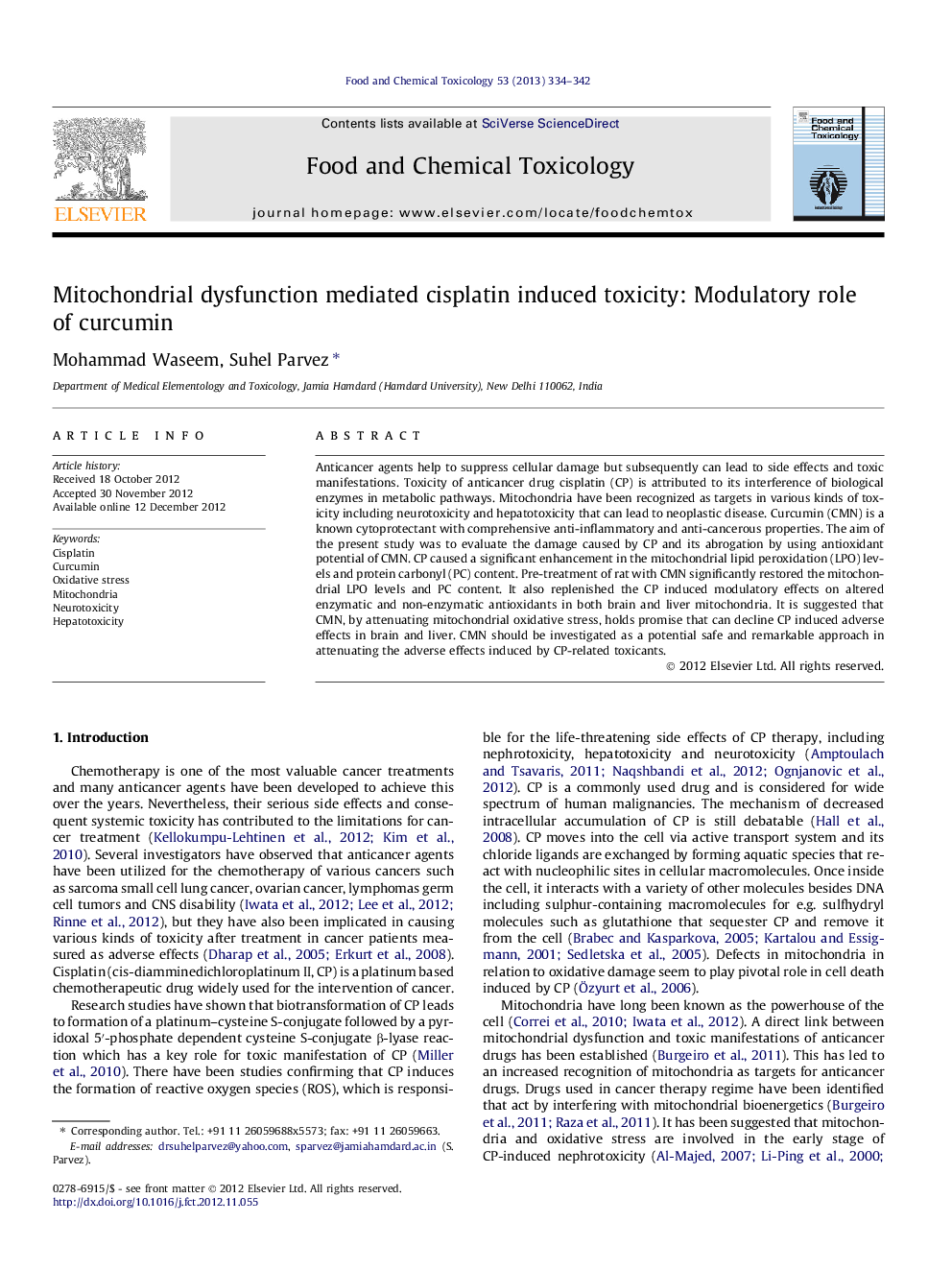| Article ID | Journal | Published Year | Pages | File Type |
|---|---|---|---|---|
| 5851393 | Food and Chemical Toxicology | 2013 | 9 Pages |
Anticancer agents help to suppress cellular damage but subsequently can lead to side effects and toxic manifestations. Toxicity of anticancer drug cisplatin (CP) is attributed to its interference of biological enzymes in metabolic pathways. Mitochondria have been recognized as targets in various kinds of toxicity including neurotoxicity and hepatotoxicity that can lead to neoplastic disease. Curcumin (CMN) is a known cytoprotectant with comprehensive anti-inflammatory and anti-cancerous properties. The aim of the present study was to evaluate the damage caused by CP and its abrogation by using antioxidant potential of CMN. CP caused a significant enhancement in the mitochondrial lipid peroxidation (LPO) levels and protein carbonyl (PC) content. Pre-treatment of rat with CMN significantly restored the mitochondrial LPO levels and PC content. It also replenished the CP induced modulatory effects on altered enzymatic and non-enzymatic antioxidants in both brain and liver mitochondria. It is suggested that CMN, by attenuating mitochondrial oxidative stress, holds promise that can decline CP induced adverse effects in brain and liver. CMN should be investigated as a potential safe and remarkable approach in attenuating the adverse effects induced by CP-related toxicants.
⺠Liver and brain are targets for cisplatin induced toxicity. ⺠Toxicity of cisplatin is mediated by mitochondria. ⺠Curcumin mitigates cisplatin induced toxicity under in vivo conditions. ⺠Armamentarium of antioxidants seems to be replenish with curcumin pre-treatment.
